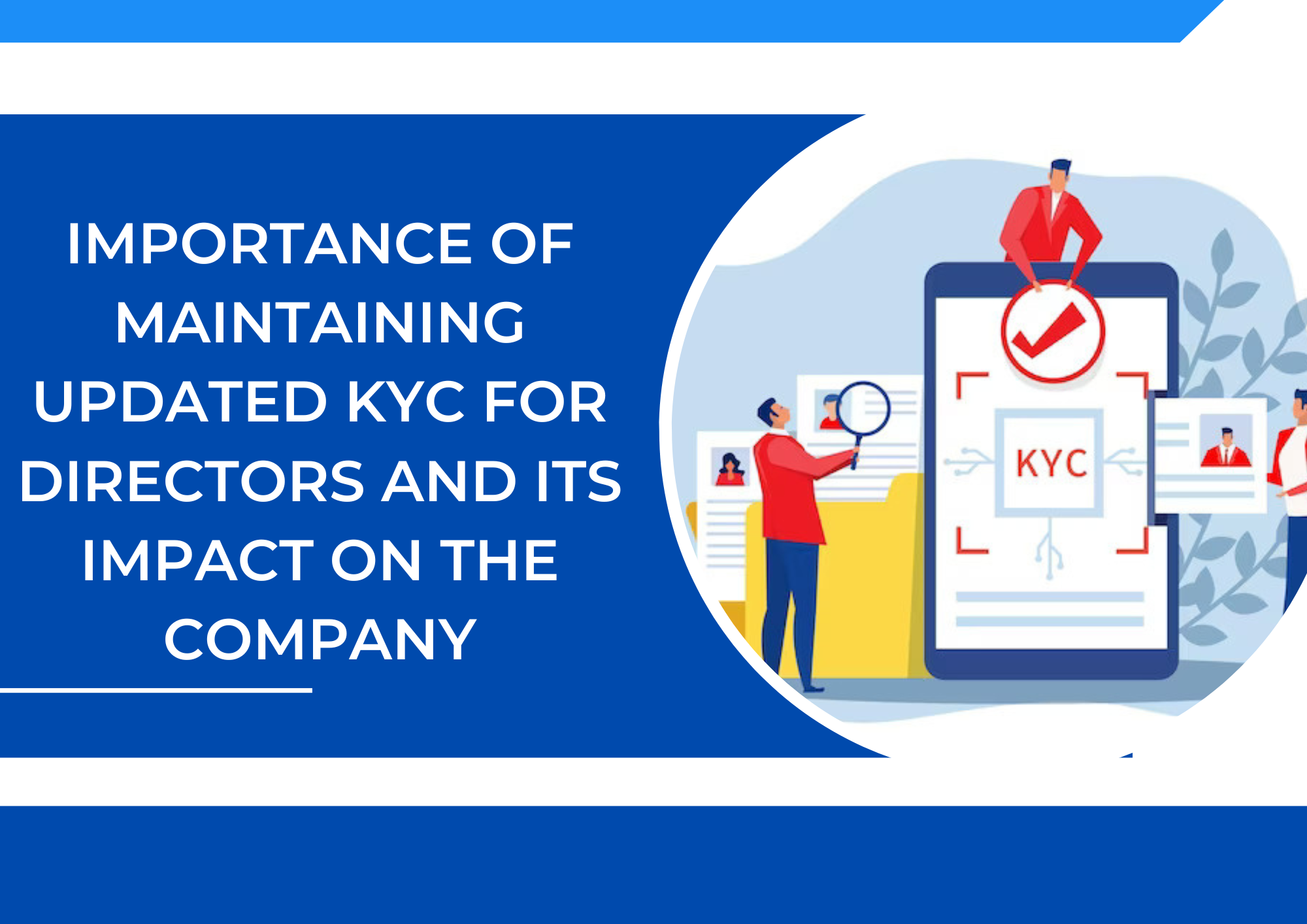In today’s business world, maintaining up-to-date Know Your Customer (KYC) details is crucial for all parties involved in a transaction. In particular, it is essential for directors to keep their KYC information up-to-date. This is not only important for compliance purposes but also has a significant impact on the company as a whole.
First and foremost, it is important to understand what KYC is and why it is necessary. KYC is a process of identifying and verifying the identity of clients, customers, and other parties involved in a transaction. This process helps in identifying potential risks and preventing fraudulent activities. For directors, KYC compliance means providing personal and professional details such as name, address, date of birth, occupation, and other relevant information to the regulatory authorities.
The Companies Act, 2013 mandates that all directors of a company need to submit their KYC details to the Ministry of Corporate Affairs (MCA) annually. The DIR-3 KYC form needs to be filed by all active directors of a company, and it is mandatory to do so before the due date. Failing to do so may lead to the deactivation of the Director Identification Number (DIN) and may have severe consequences for the director and the company.
The importance of maintaining updated KYC information cannot be overstated. It not only helps in maintaining compliance but also has a significant impact on the company’s operations and reputation. Here are some key reasons why directors should keep their KYC information up-to-date:
1. Compliance with Regulatory Requirements
The primary reason for maintaining updated KYC information is to comply with the regulatory requirements. Non-compliance with these regulations can lead to hefty penalties, fines, and even legal action against the director and the company. By maintaining up-to-date KYC information, directors can ensure that they are always in compliance with the latest regulations and avoid any legal or financial implications.
2. Prevention of Fraudulent Activities
Maintaining updated KYC information helps in identifying potential risks and preventing fraudulent activities. This is particularly important for companies that deal with sensitive information or large financial transactions. By verifying the identity of the directors and other parties involved in a transaction, companies can prevent fraudulent activities and protect their reputation.
3. Improved Efficiency and Speed of Transactions
Maintaining updated KYC information can also improve the efficiency and speed of transactions. By providing accurate and up-to-date information, directors can speed up the verification process, which can help in completing transactions quickly and efficiently. This, in turn, can help in improving the company’s operations and profitability.
4. Building Trust and Reputation
Maintaining updated KYC information can also help in building trust and reputation. By providing accurate and up-to-date information, directors can demonstrate their commitment to transparency and compliance. This can help in building trust among customers, investors, and other stakeholders, which can ultimately enhance the company’s reputation.
5. Avoidance of Deactivation of DIN
Failure to file the DIR-3 KYC form can lead to the deactivation of the Director Identification Number (DIN). This can have severe consequences for the director and the company. A deactivated DIN means that the director cannot be appointed to any other company or be a part of any other company’s board. It can also lead to penalties, fines, and legal action against the director and the company. Therefore, it is essential to maintain updated KYC information and file the DIR-3 KYC form before the due date to avoid any such consequences.
In conclusion, maintaining updated KYC information for directors is crucial for companies to comply with legal regulations, maintain transparency, and reduce the risk of fraud and identity theft. The process of updating KYC information for directors is simple and can be done online through the MCA portal. Companies should make it a priority to ensure that their directors’ KYC information is updated and accurate, and directors should also take responsibility for keeping their information current. By doing so, companies can build trust with stakeholders, maintain their reputation, and minimize legal and financial risks. Ultimately, maintaining updated KYC information for directors is an essential step in ensuring the long-term success and sustainability of a company.


 Thank You!
Thank You!